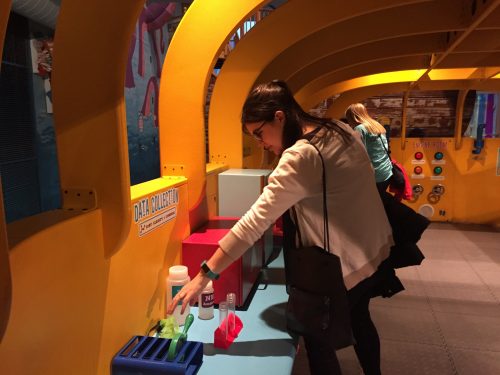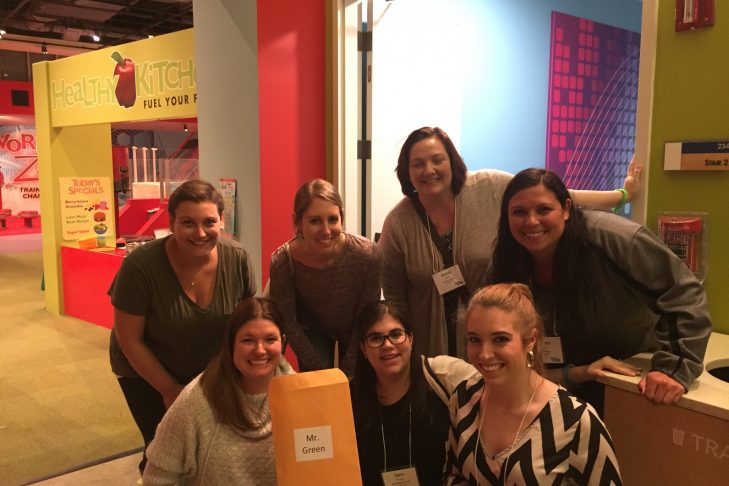Last week I had the privilege of attending the National Inclusion Project’s annual Power of Play Conference. Held over three days at the Marbles Kids Museum in Raleigh, N.C., the conference is aimed at both inclusion professionals as well as those who wish to make their existing programs more inclusive.
This meant that I was able to network with recreational professionals, specialists, educators, managers of play spaces (parks, zoos, other museums), and community leaders, from all around the country. Some, like me, were looking for even more ways to make our programs and events as inclusive and successful as possible, while others were just beginning to explore inclusion.
The tagline of the game-themed conference was, “Are you ready for your next move?” This reinforced the notion that no matter what step we are at with inclusion, we still have room to grow and moves to make.
The museum was the perfect setting for this conference, as the sense of play and imagination lent itself to a collaborative, creative environment.

Marbles itself is a great example of an accessible recreational space for kids of all abilities, and we were able to experience the museum for ourselves and see what aspects we can apply to our own spaces, such as sensory areas and accommodations for films and presentations.
The conference’s format included breakout sessions as well as those for the group as a whole. The session choices allowed me to focus on specific areas that I wish to work on, including communication, working with parents, empowering teens, and collaborating with other community organizations.
Every day at Yachad we focus on inclusion, but that doesn’t mean that we know everything. This conference allowed me to see different perspectives and viewpoints on the many diverse facets of inclusion, and that not every solution is right for every person or situation.
One major theme throughout the sessions was the staggeringly high rate of unemployment for adults with disabilities, and how we can start during childhood to lower this statistic and allow our kids and teens to gain the tools necessary for employment and a full, meaningful life. The opportunity to play in safe, inclusive spaces is vital to the development of social and emotional skills.
This changed my perspective on the events that I run for kids and teens. For example, we have held two events this year at Launch Trampoline Park, one for high-schoolers and one for younger children. Both seemed like purely recreational events to me, purely for the purpose of play, as opposed to educational. They were, but that’s what makes these events important: by creating inclusive play spaces, we allow our kids, regardless of their abilities, to interact with each other and develop friendships.
Hearing from a parent at one of the breakout sessions helped solidify this new perspective. She described how isolated her son was when he first received his diagnosis, and how finding the right inclusive school and camp programs helped enrich both his life and the lives of his classmates, who accept and support him as they would any of their other friends.
There were many moments such as this where I realized the importance of the work that everyone at the conference does, and why we do it. By focusing on what a person can do, their talents, interests and strengths, and not on what they can’t do, we help them to reach their full potential. Focusing on play may seem trivial, but through these experiences they learn fundamental skills, such as problem solving, and create positive memories. By allowing kids to be kids we set them up for a successful future as adults.
Learn more about the National Inclusion Project here.
This post has been contributed by a third party. The opinions, facts and any media content are presented solely by the author, and JewishBoston assumes no responsibility for them. Want to add your voice to the conversation? Publish your own post here. MORE

